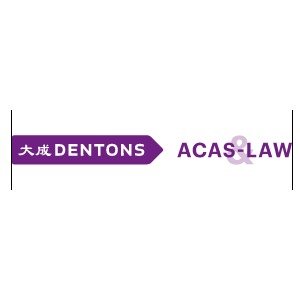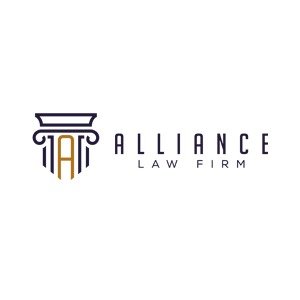Best Class Action Lawyers in Port Harcourt
Share your needs with us, get contacted by law firms.
Free. Takes 2 min.
List of the best lawyers in Port Harcourt, Nigeria
About Class Action Law in Port Harcourt, Nigeria
Class Action Law in Nigeria, including Port Harcourt, falls under the general umbrella of the Nigerian Legal System. This type of law enables a large group of individuals, who have suffered the same or similar injury due to the actions of a common defendant, to collectively sue the defendant. The goal is to achieve redress for the collective class rather than the individual and it serves to reduce the number of lawsuits against the same defendant. It is worth noting that the concept of class action is not expressly provided for in any legislation in Nigeria. Its relevance has, however, been acknowledged in case law.
Why You May Need a Lawyer
Individuals might require legal help in Class Action for various reasons. These could include cases where a number of people suffered the same or similar injury because a product turned out to be unsafe, or when a common supplier executed an unjust business practice affecting many customers. A class action lawyer could help in organizing the group, consolidating the cases, obtaining a representative plaintiff, and in filing and arguing the case effectively in court.
Local Laws Overview
As Nigerian laws do not expressly cover class action suits, they are mainly governed by case laws, precedents, and the inherent jurisdiction of the court. Nevertheless, the principles of representative action as expressed in the Nigeria's rules of court, particularly Order 13 rule 8 of the Rivers State High Court (Civil Procedure) Rules 2010, can be used as a basis for instituting a class action in Port Harcourt. It would be prudent to consult a lawyer with knowledge of these rules and related case law when considering a class action lawsuit.
Frequently Asked Questions
1. What are the requirements for a class action lawsuit in Port Harcourt, Nigeria?
The requirements for a class action lawsuit in Nigeria are similar to those in many jurisdictions. The key elements usually considered are numerosity (the class should be so numerous that joining all members is impracticable), commonality (there must be questions of law or fact common to the class), typicality (the claims of the representative parties are typical of the claims of the class), and adequacy of representation (the representative parties will fairly and adequately protect the interests of the class).
2. Can foreign nationals be part of a class action lawsuit in Nigeria?
Yes, foreign nationals can be part of a class action lawsuit in Nigeria, as long as the legal issue concerns them and it pertains to circumstances or situations that occurred in Nigeria.
3. Can I opt-out of a class action lawsuit?
The ability to opt-out of a class action is a common feature in jurisdictions that explicitly allow class actions. While Nigerian laws do not expressly cover this, opt-out options might be at the discretion of the court, based on the specifics of the case.
4. How long does a class action lawsuit take?
The duration of a class action lawsuit can vary greatly based on the complexity of the case, the number of parties involved, and the specifics of the legal circumstances.
5. What are the benefits of a class action lawsuit?
Class action lawsuits provide an avenue for a group of people who have suffered similar harm to seek redress collectively. This can be especially beneficial when the individual claims might be too small to pursue individually. This type of litigation can also lead to better resource management by the court, thereby promoting judicial economy.
Additional Resources
For more information about class action laws in Nigeria, you may want to consider the following resources:
- The Nigerian Bar Association (NBA): The NBA is a professional association for legal practitioners in Nigeria and can provide resources or referrals for lawyers specializing in class action law.
- The Rivers State Ministry of Justice: This is a key governmental body that could provide vital information regarding legal practice and procedure in Rivers State.
- Nigeria Law School, Port Harcourt Campus: They might be able to provide additional resources on class action law, including existing relevant case laws.
- Online legal databases, blogs, and publications like Nigerian Law Guru or Law Pavilion: These can also provide helpful insights into class action law in Nigeria.
Next Steps
If you believe you require a class action lawsuit, the first step is to consult a competent lawyer who specializes in class action law. This specialist can guide you on the strength of your case, the processes involved, as well as potential challenges you might face. From there, gathering the necessary documents, class members, and evidence would be the next steps. Finally, it's important to remember that class action lawsuits can be complex and often require a great deal of time and resources, so being prepared for this is essential.
Lawzana helps you find the best lawyers and law firms in Port Harcourt through a curated and pre-screened list of qualified legal professionals. Our platform offers rankings and detailed profiles of attorneys and law firms, allowing you to compare based on practice areas, including Class Action, experience, and client feedback.
Each profile includes a description of the firm's areas of practice, client reviews, team members and partners, year of establishment, spoken languages, office locations, contact information, social media presence, and any published articles or resources. Most firms on our platform speak English and are experienced in both local and international legal matters.
Get a quote from top-rated law firms in Port Harcourt, Nigeria — quickly, securely, and without unnecessary hassle.
Disclaimer:
The information provided on this page is for general informational purposes only and does not constitute legal advice. While we strive to ensure the accuracy and relevance of the content, legal information may change over time, and interpretations of the law can vary. You should always consult with a qualified legal professional for advice specific to your situation.
We disclaim all liability for actions taken or not taken based on the content of this page. If you believe any information is incorrect or outdated, please contact us, and we will review and update it where appropriate.
















